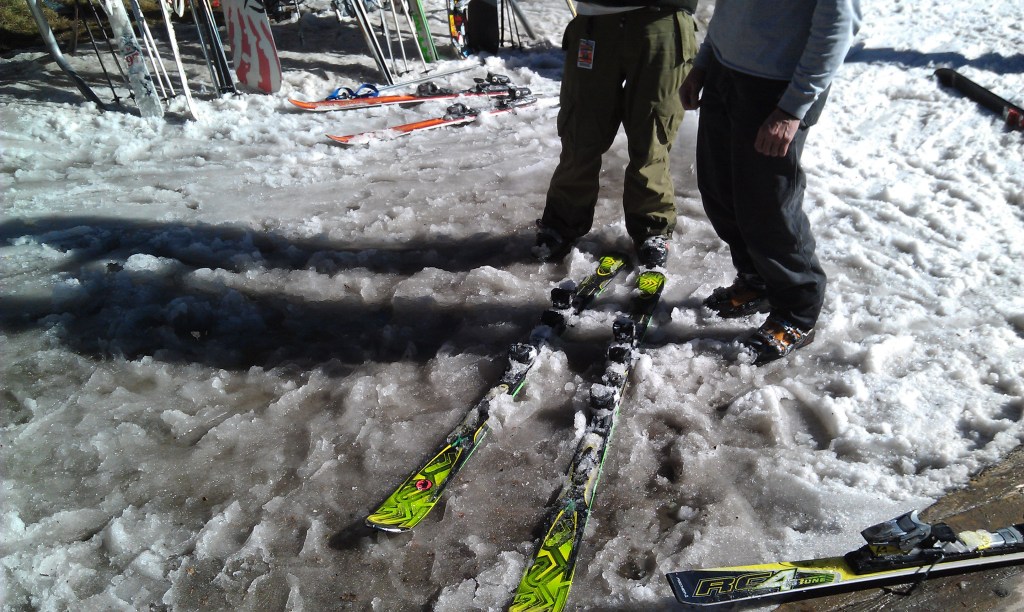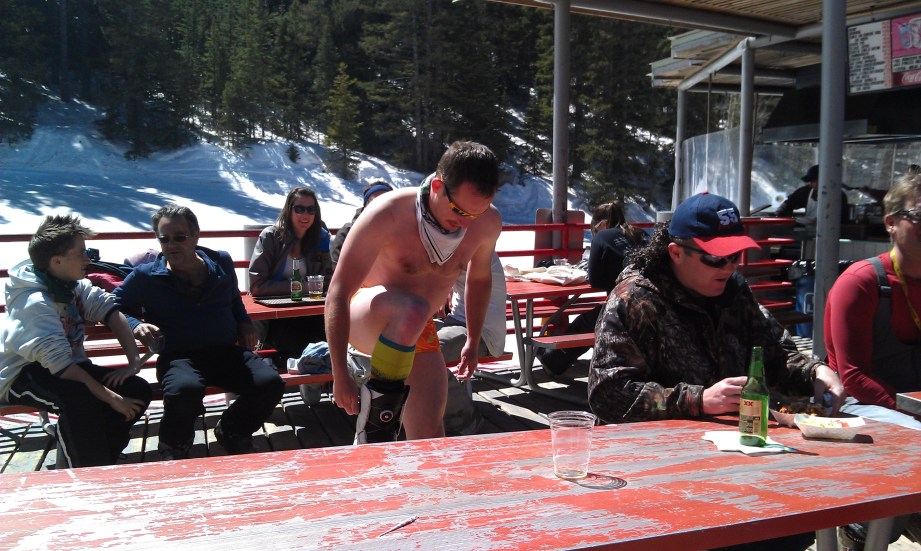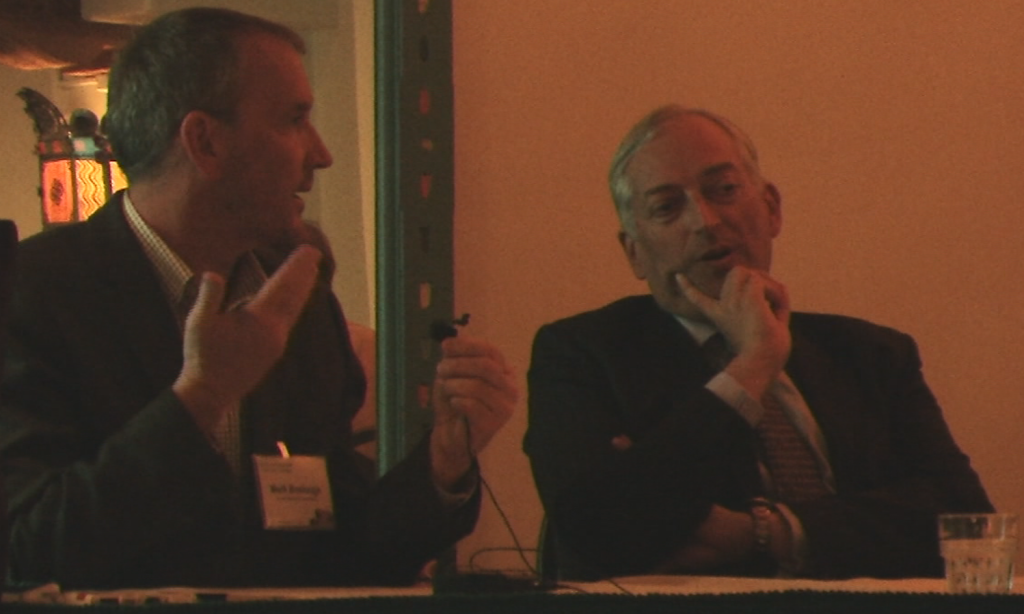Reported by KUNM Radio, EARTH EAR WAVES "Scientists Push to Change the Timing of the Seasons." Reprinted in full.
SANTA FE, NM - Local skiers were festive but disappointed on closing day, a full week earlier than originally planned. As temperatures in the state capital were expected to approach 80 degrees on the first day of April, rivulets of water cascaded into the ski area parking lots. Large patches of bare ground were exposed along with the bare skin of skiers and snowboarders who occupied Totamoff's deck to enjoy the sun and beer.
"When I first came to Santa Fe, it always snowed by Halloween and the ski area always opened by the end of November," observed Michael Wigley, a local skiing legend. "Now we are lucky if we have decent snow before Christmas."

Scientists and meteorologists have voiced growing concerns that the winter season is disappearing across much of the northern hemisphere. Dr. Jeff Masters put it bluntly, "Mother Nature has fast-forwarded past spring and gone straight to summer over the Midwest."
Now a group of scientists who see this trend as unstoppable have proposed changing the way we define seasons. Mark Boslough, a New Mexico physicist, explained, "We have chosen to define seasons in a very arbitrary way. Seasons are an artifact of human creation and it's time for an update." Boslough pointed out that astronomy went through a similar controversial redefinition in 2006, when the International Astronomical Union redefined the meaning of the word "planet" and removed Pluto from the list.
He and some of his colleagues are calling for an Intergovernmental Panel on Season Reform charged with renaming the seasons to reflect changes that are shortening ski seasons, and adjusting the calendar appropriately. The last time this happened was when the Gregorian Calendar was adopted in 1582 to correct for a drift in seasons due to a phenomenon that scientists call "precession." The fix was to add a leap year every four years. But now, according to some scientists, there is a "leap year drift" which caused this year's spring to start on the earliest date since 1896. As one scientist put it, "March 31 is the new April 1."

Season reform campaigners openly acknowledge that such changes will not be without controversy. They have argued that seasons were never defined properly in the first place. According to some scientists, seasons are controlled by the tilt of the Earth's axis, which exposes the hemispheres to different amounts sunlight at different times of the year.
While the axis-tilt theory represents the consensus among many scientists, not everyone agrees. "Campaigners... state or imply that there is a scientific consensus on all of these things, when in fact there is none," according to the Viscount Monckton of Brenchley. Monckton debated Boslough at a recent climate conference in Santa Fe. Others dispute the claim that this is a particularly warm spring, pointing out that last night's low in Santa Fe was only 38 degrees. "The average high in Santa Fe in January is 43 degrees, so it's actually getting colder this spring," remarked one skeptic.
There is general agreement among season reformers that the vernal equinox should be the midpoint of spring, not the first day as currently defined. If this change is made, spring would always start on February 2nd, regardless of whether or not the groundhog sees his shadow.
Areas of disagreement center on the names of the seasons themselves. Many scientists want to adopt the old Latin names to make a clean break from the current system and avoid confusion. Some want the names to better reflect the warming climate (one suggested that winter be renamed "wimper"). Others have suggested getting rid of the name "winter" altogether and going directly from autumn to spring, while re-naming the two warm seasons "first summer" and "second summer" to compensate.
But the naming of the seasons was not a topic of conversation at the ski resort. Wigley summed up the debate succinctly, "January, February, Arbitrary... I don't give a damn what they call the months or seasons. I just want to ski."

See related stories in the Huffington Post.







No comments:
Post a Comment